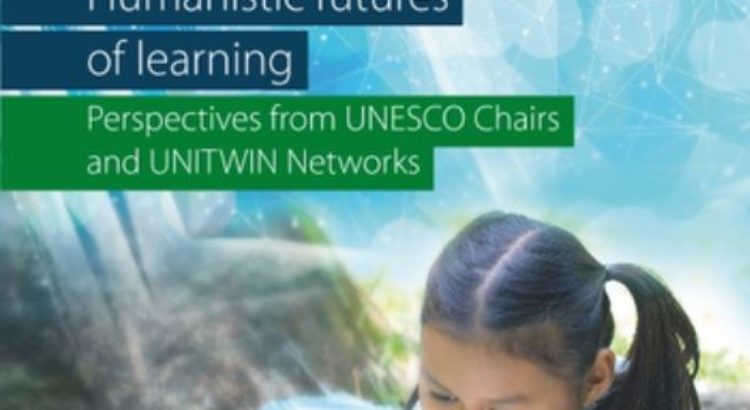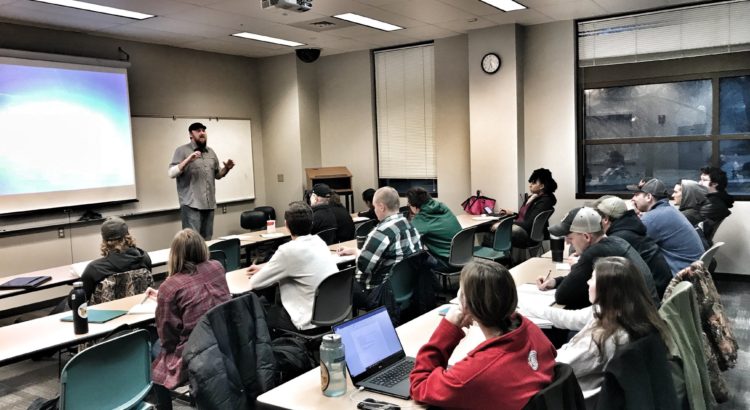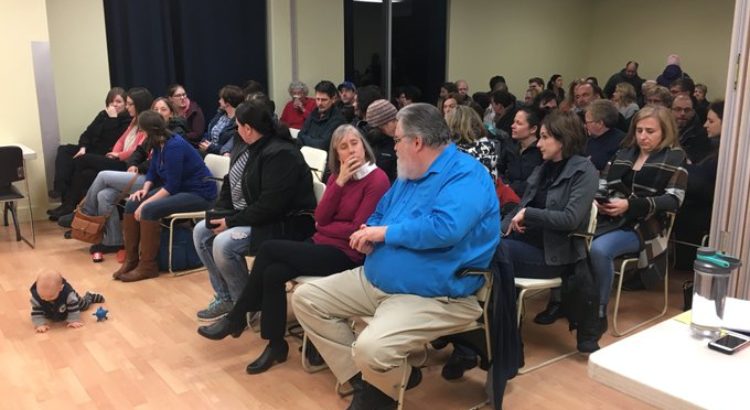
Future of education


EEUU: Students inspire hope for bright future
By Brandon Butler/ duboiscountyherald.com/ 23-05-2018
My first semester as an adjunct instructor ended last week. I taught a class I created called Communications in Natural Resources. It was an experience I’ll treasure forever. Over the course of 15 weeks, I came to realize if my students are a reflection of their generation, the future of our natural world is good hands.
I spend a lot of time talking and writing about topics relating to the outdoors, specifically fish and wildlife. Most of the time, I am not an expert on the subject. While I may know a little about a lot of things, it’s people who know a lot about one thing who communicators like me use as sources for stories. Unfortunately, too often, the expert sources are poor communicators. They possess incredible knowledge. Yet struggle to deliver what they know to the general public in a way that makes it relevant to the masses.
As a member of a Natural Resources Advisory Council, I have come to know and respect some of the challenges of higher education leadership. During a meeting last year, I was asked if I saw any opportunity to improve the curriculum. I suggested we do a better job of teaching these brilliant young minds how to tell their stories. I was empowered to create a curriculum and teach it.
To begin with, I examined beliefs I feel justified the need for this class. Number one being; no matter what your job is, communication is important. And the more prepared you are to offer input on the efforts of your work the more likely you are to build support for what it is you do and care about. Also, as far as personal advancement, if you become known as someone who can both complete the work and communicate the outcomes, you are much more valuable to the business, agency or organization you’re part of. Who would remember the revolutionary work of Aldo Leopold had he not written a “Sand County Almanac?”
I broke the course down into lessons about different communication platforms and had guest lecturers discuss their expertise. We covered magazine writing, letters to the editor and opinion pieces in newspapers, television and radio interviews, social media, websites, photography, public speaking and more.
Communication is critical in conservation, and not all citizens gather information in the same ways. Agencies have to communicate across the many different platforms from which the public consumes information. Through out the semester, guest speakers emphasized the importance of communications in all natural resource professions, the students listened and learned.
One great guest lecturer was my buddy Nathan McLeod who hosts a morning radio show. McLeod talked about how much he values natural resources and enjoys sharing messages of conservation with his listeners, but finds guests often struggle with the rapid fire pace of a radio interview. He wants guests on his show to talk conservation, but needs them to be fun and personable, and to talk in a way most people can relate to.
“Leave the rocket science at home,” McLeod said. “Give them the elevator speech. Quickly explain to listeners why this important and why they should care. Tell them how it impacts them personally.”
At the end of the class, students were paired into four groups with the assignment of building and implementing a communications plan around a natural resources topic of concern. The four topics they selected and worked on were: Open New State Parks, Reintroductions of Wildlife Species, Wildflowers in Urban Settings and The Effects of Climate Change on Wildlife. You can see the minds of tomorrow have their priorities.
I hope my students gained a better understanding of how important it is to communicate scientific knowledge in a way most citizens can understand. Our natural world faces incredible challenges requiring the support of the public to address and fix. Once these students are in professional roles, if I did my job, they will try a little harder to share their expertise.
See you down the trail…
*Fuente: https://duboiscountyherald.com/b/column-students-inspire-hope-for-bright-future

Rural community session held to discuss education concerns in Nova Scotia
Por: globalnews.ca/21-02-2018
A packed house filled a rural Nova Scotia community centre as many parents came out to hear why teachers are concerned over the future of education in the province.
“Transformation takes a lot of thoughtful collaboration and we’re not seeing that at the moment and that’s what needs to happen if we have any hope of this being successful,” Cynthia Bruce said, a mother of children who have gone through the provincial public school system.
Last fall, the province hired Dr. Avis Glaze, an “international recognized expert” to review the public school system in Nova Scotia for the first time in more than 20 years.
The Glaze report made 22 recommendations, including moving principals and vice-principals out of the Nova Scotia Teachers Union and into a new professional association.
The report recommended the establishment of an education ombudsperson to investigate and resolve concerns or complaints in the education system.
Glaze also called for a provincial college of educators to license, govern, discipline and regulate the teaching profession.
The province plans to implement all of the recommendations and that’s where concern from the Nova Scotia Teachers Union has come into play.
Grant Frost has over two decades of teaching experience and is also the president of the Halifax County local.
“I think that I’d be very happy with a pause button right now, so that everyone can catch their breath. Let’s put a pause on the Glaze report, let’s not rush this. If you rush this through, we’re going to leave kids behind and I think that’s a very real concern,” Frost said.
He says he’s not against making changes to the education system but feels the province is rushing the process. Frost hopes the move to ask NSTU members for a strike mandate demonstrates the need to slow down.
“Really, what I think we’re trying to accomplish here is to have an opportunity to sit down with this government and all the stakeholders, to try to figure out exactly what some of our concerns are and have a legitimate conversation around them.”
*Fuente: https://globalnews.ca/news/4034770/education-concerns-nova-scotia/






 Users Today : 4
Users Today : 4 Total Users : 35460307
Total Users : 35460307 Views Today : 5
Views Today : 5 Total views : 3419033
Total views : 3419033